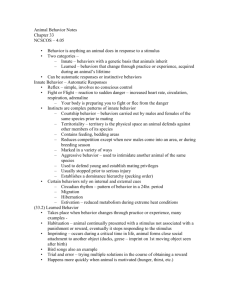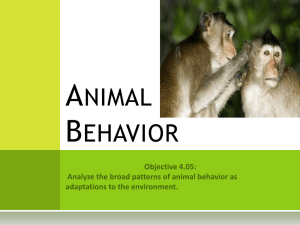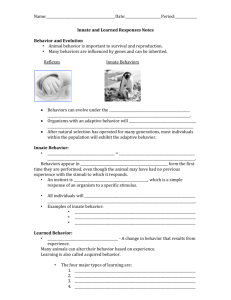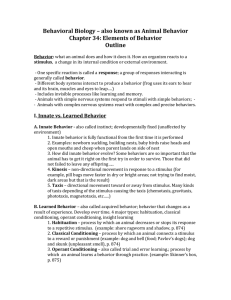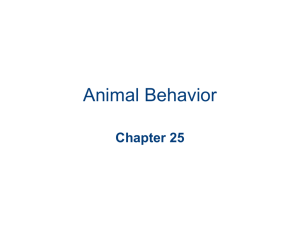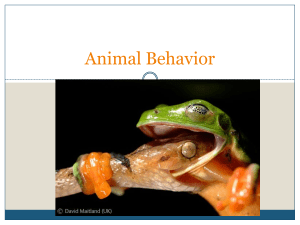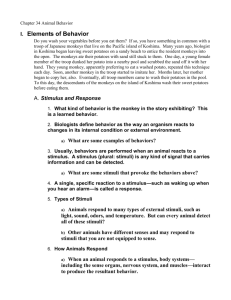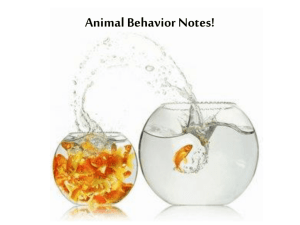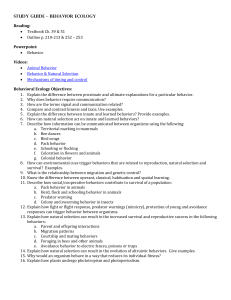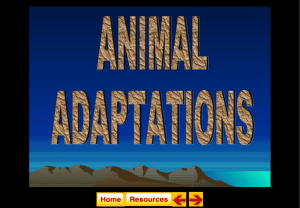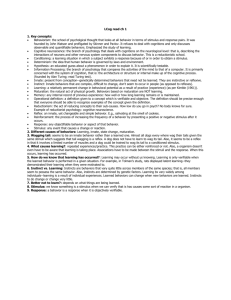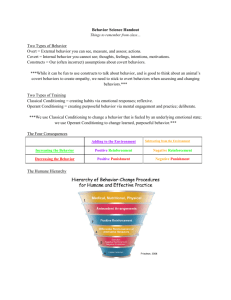Behaviors
advertisement
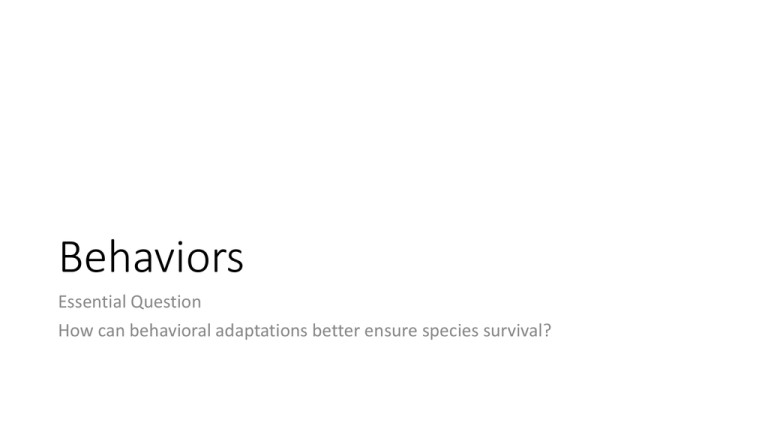
Behaviors Essential Question How can behavioral adaptations better ensure species survival? Living Relationships: Behaviors • Behavior: the way an organism reacts to changes in its internal condition or external environment; response to stimuli • Innate behavior: inborn behavior; fully functional the first time they are performed • Instinct: natural inclination, can be a synonym for innate behavior; ex. suckling of a newborn mammal Living Relationships: Behavior • Learned Behavior: behavior as a result of experience • Ex. Primates using “tools” Living Relationships: Behavior • Why do you think self-preservation and species preservation are the strongest instincts? • survival and a will to live must come first to ensure that the species lives on! • All basic needs must be met and take priority over other behaviors Living Relationships: Behavior COURTSHIP BEHAVIORS FIGHT OR FLIGHT • Strategies to attract a mate • Response to stress; prepares organism to react/retreat; adrenaline Living Relationships: Behavior TERRITORIALITY AGGRESSION • Occupying and protecting a specific area • Threatening behavior to gain control Living Relationships: Behavior DOMINANCE HIERARCHY CIRCADIAN RHYTHM • Social structure ranking individuals based on position in group; pecking order • Daily/nightly behavior patterns Living Relationships: Behavior MIGRATION PARENTAL CARE • Movement from place to place • Caring for offspring: food, shelter, nurturing, etc. Living Relationships: Behavior HIBERNATION ESTIVATION • Dormancy during winter; conserves energy • Reduced activity during summer; avoid intense heat Living Relationships: Behavior PHEROMONES SOUND SIGNALS • Chemical signals for communication • Vocal signals for communication Living Relationships: Behavior LANGUAGE IMPRINTING • Complex! Combination of sounds, symbols, or gestures bases on rules for order and meaning • Innate + learned behavior! • Young instinctually follow the first object they see/smell Living Relationships: Learned Behavior INSIGHT LEARNING HABITUATION • Reasoning; applying knowledge to new situations • Decrease or stop a response to a stimuli Living Relationships: Learned Behavior OPERANT CONDITIONING Trail and Error CLASSICAL CONDITIONING • Learning a behavior through practice/repetition for reward/punishment; training • Mental connection between stimulus and reward/punishment Taxes/kinesis TAXES/TAXIS KINESIS • Movement in response to stimulus • Undirected movement • Ex. Paramecium
